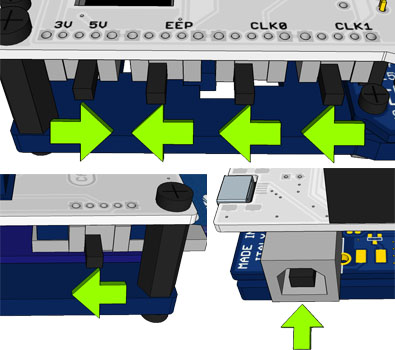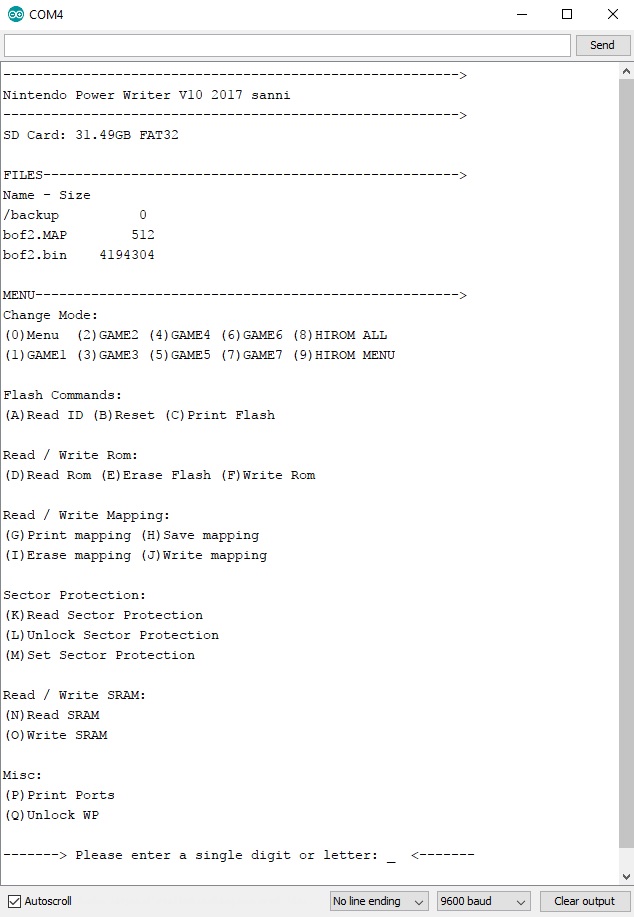This Arduino sketch can write Nintendo Power SF Memory cartridges without an external clock source like the Adafruit Clock Generator. It also uses the Arduino Serial Monitor instead of the OLED display and buttons.
Copy the rom and map file to the root directory of your SD card and make sure that the filenames are below 8 characters in length.
Configure the switches like so and use the USB port that is connected directly to the Arduino Mega:
In the Arduino IDE select the correct Serial Port under Tools then open the Serial Monitor, make sure the baud is set to "9600" and in the box in front of the baudrate there should be "No line ending" selected.
First send "8" via the text box and "Send" button at the top of the Serial Monitor windows. This will switch the cart to "hirom all" mode. It should give you the following feedback somewhere in the text box. Check that it did succeed:
(8)HIROM ALL 0x04
Success
2A 4 2A 2A FE 61 A5 0
In case it failed close the Serial Monitor and switch the Arduino Mega off and on again and start from the beginning.
Next send "q" to unlock the write protection:
(Q)Unlock WP
Success.
2A 4 2A 2A FE 61 A5 0
Before you write anything you should always do a backup of your rom and mapping.
So next send "h" and then send a filename like "original.map" to save your carts original mapping.
Reading mapping into file original.map
Done.
Now save the flash by sending "d" and again choosing a filename like "flash.bin", it should now beginn to print dots to indicate progress.
Reading flash into file flash.bin
................................................................
Finally you can split the flash.bin file into the individual roms using the NP Split program: https://github.com/sanni/cartreader/tree/master/extras/npsplit
To flash something new you need to erase both the flash and the mapping first before you send the write command. Flashing the Nintendo Power Cart is more complicated since you need to provide it with a mapping.map and flash.bin file. You can create those files with the SF Memory Binary Maker: https://github.com/moldov/SF-Memory-Binary-Maker

